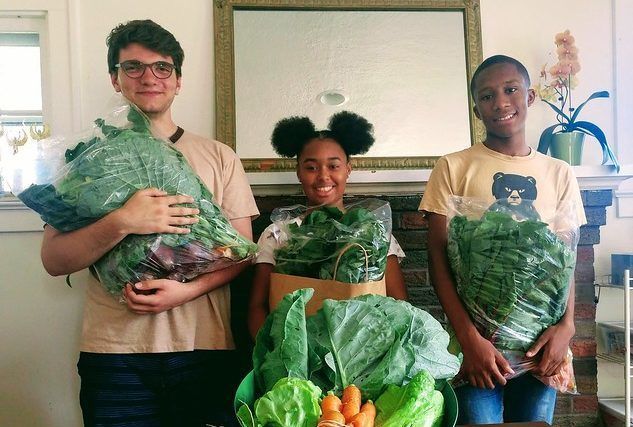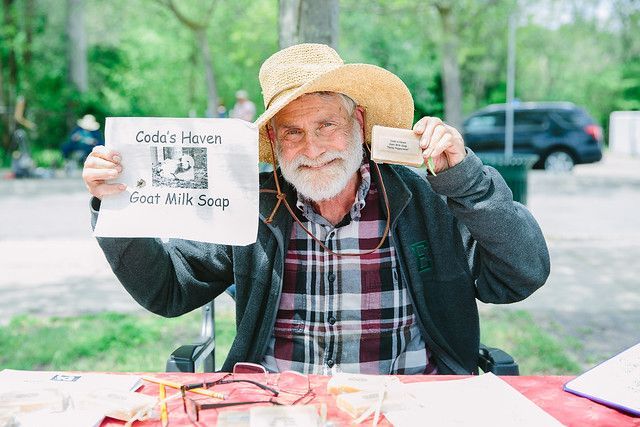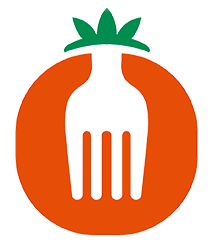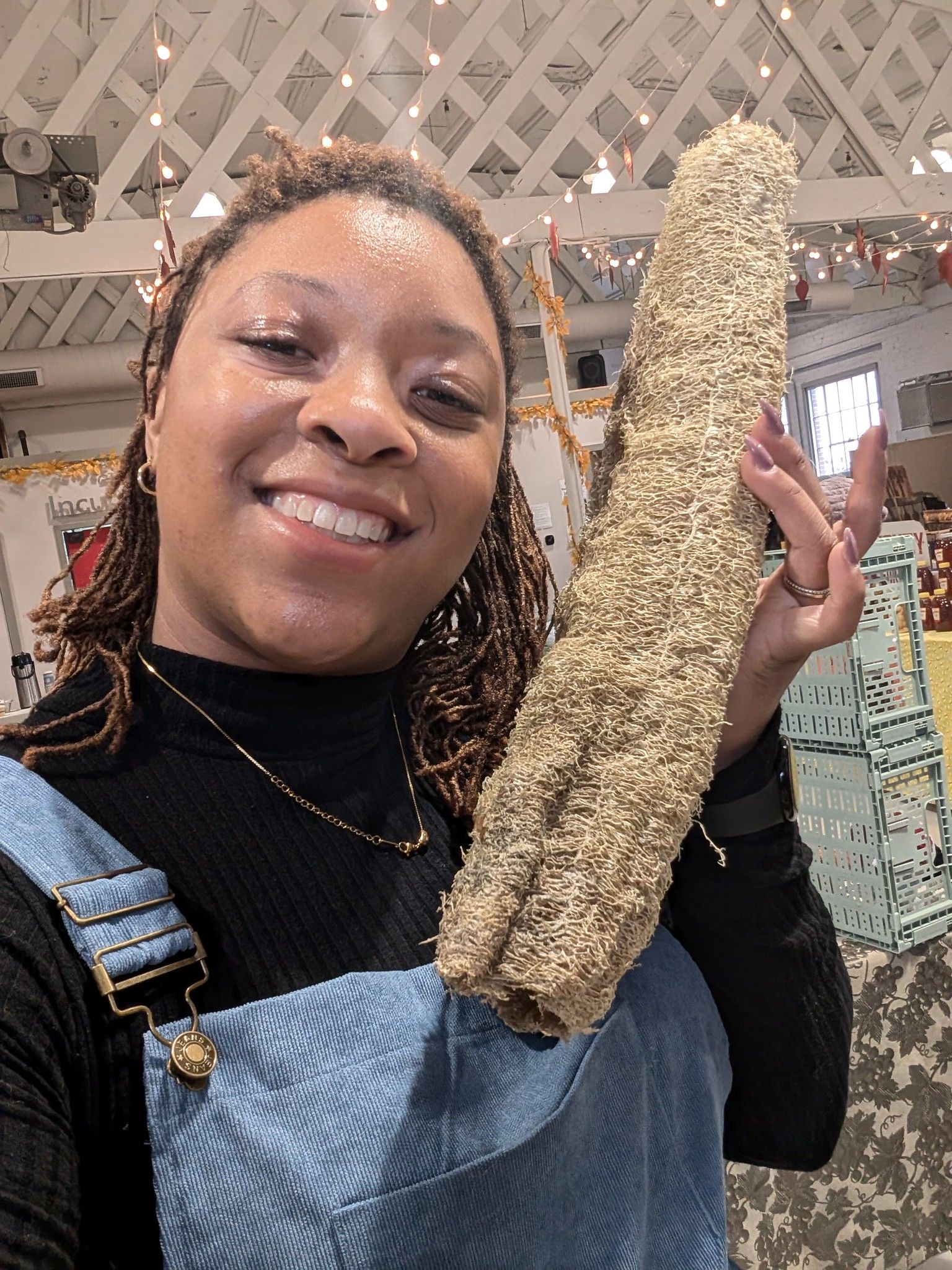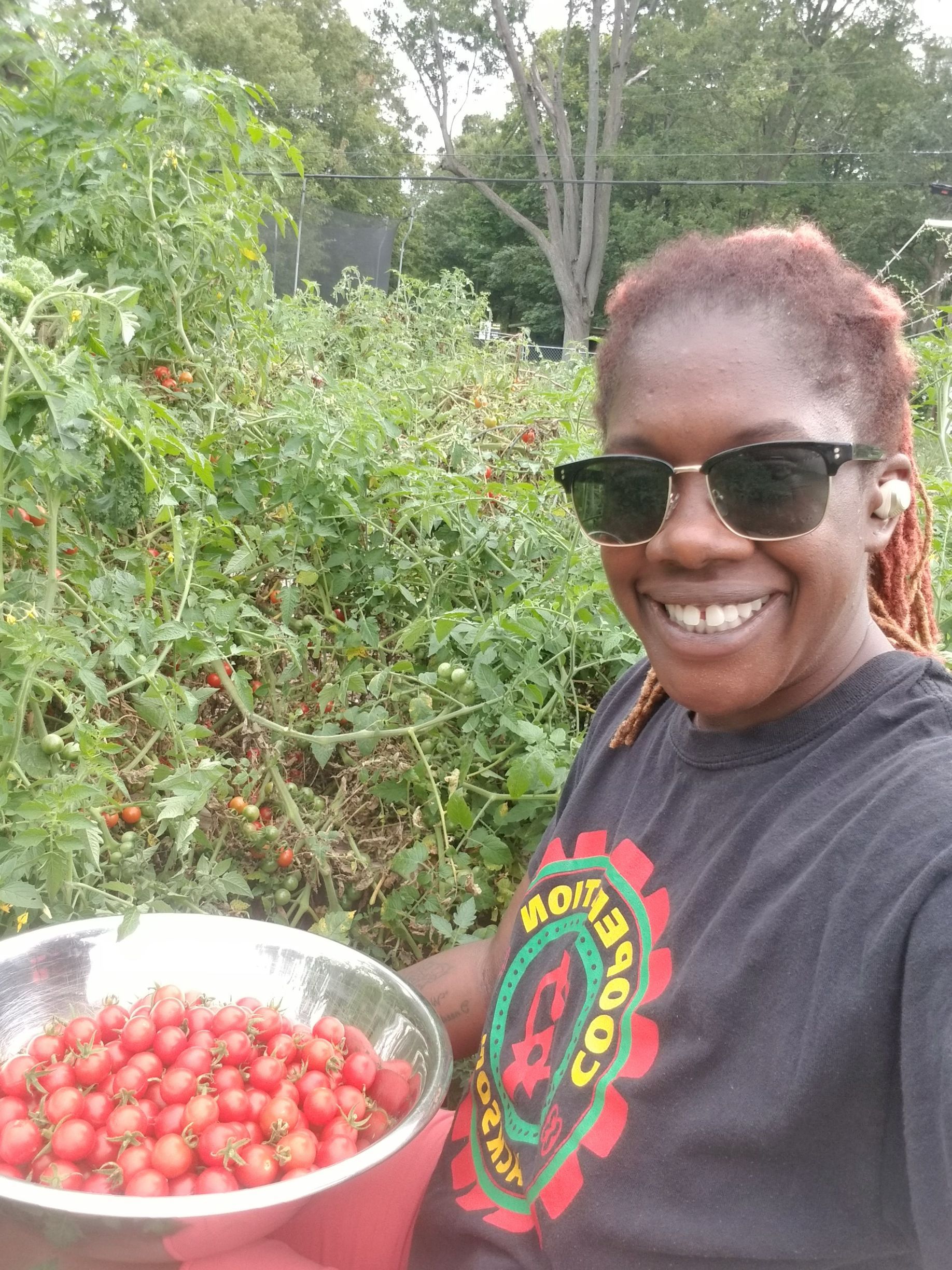BLOG
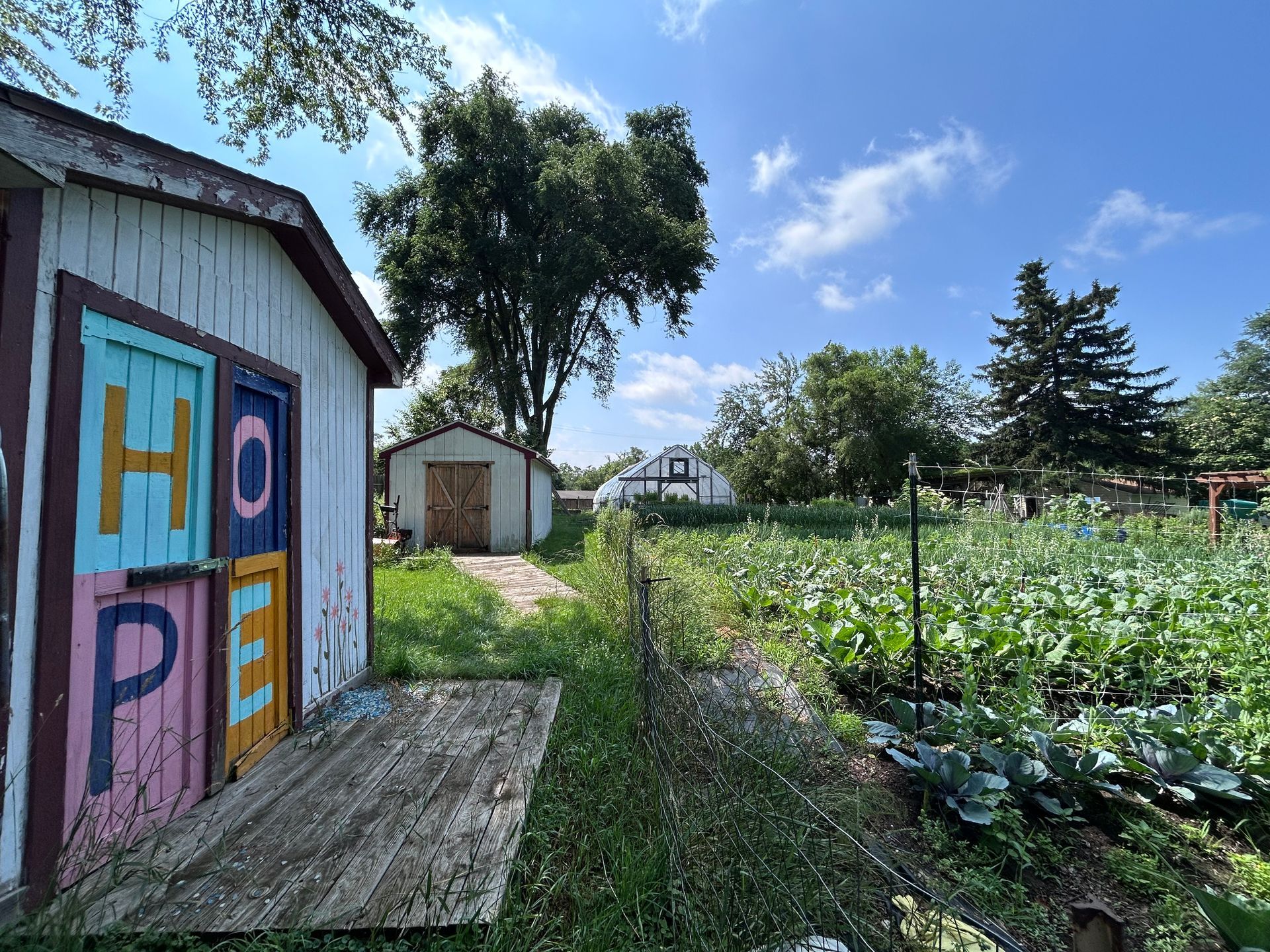
Beloved Community, The solstice has turned, and with it, so have we; from spring’s promise to summer’s abundance. Here at Growing Hope, the gardens are bursting. Our new produce stand is packed to the brim, feeding our people. The Ypsilanti Farmers Market is an eruption of flavor, fragrance, and connection with lettuces that fan open like green flames and strawberries glistening red and warm from the sun. Inside the incubator kitchen, the hum of creativity rises. Local makers prepping for pop-ups across the county, building micro-enterprises from ancestral memory and modern hustle. And our Teen Leadership Program? Alive and electric. Twelve young visionaries are learning, leading, and laboring with heart. The farm pulses with their energy. As the land leans fully into the heat of summer, I find myself reflecting, not just on the harvest, but on the moment. The landscape around us is shifting fast. This moment has been described in many different ways, but we know the truth: this is a time of hope and possibility. Hope is not naïve. It’s an act of defiance. Of imagination. Of sovereignty. In complex times, the wisest plans aren't drawn, they're grown. Last month, I had the honor of testifying before the Senate Committee on Natural Resources and Agriculture . I shared what you already know: Growing Hope doesn’t just run programs. We grow possibility. We practice emergence. We tend a living ecosystem of relationships. I told them: Each year, Growing Hope supports hundreds of backyard growers through our Home Vegetable Garden program. We provide raised beds, rich soil, seedlings, and the knowledge to grow a harvest that feeds families. These aren’t symbolic plots—they’re productive, generative, and abundant. And from them, we are witnessing the reweaving of a community food web—a quiet, powerful economy of mutual aid. Tomatoes for cucumbers. Collards on porches. Elders teaching youth to save seed. These gardens offer more than food. They offer belonging. They offer resilience. They offer infrastructure—the kind that actually holds when the shocks come. This isn’t charity. This is solidarity. It’s sovereignty. It’s survival. Together, we carry resilience. Together, we cultivate hope. Together, we are growing a hyper-local, sovereign, joyful food system; one garden, one porch, one plate at a time. In solidarity and soil, Julius P.S. The future of food assistance is uncertain ; we’re collecting stories to highlight the essential role that SNAP and other food assistance programs play in the Washtenaw County local food system. Keep an eye on our blog to learn more.
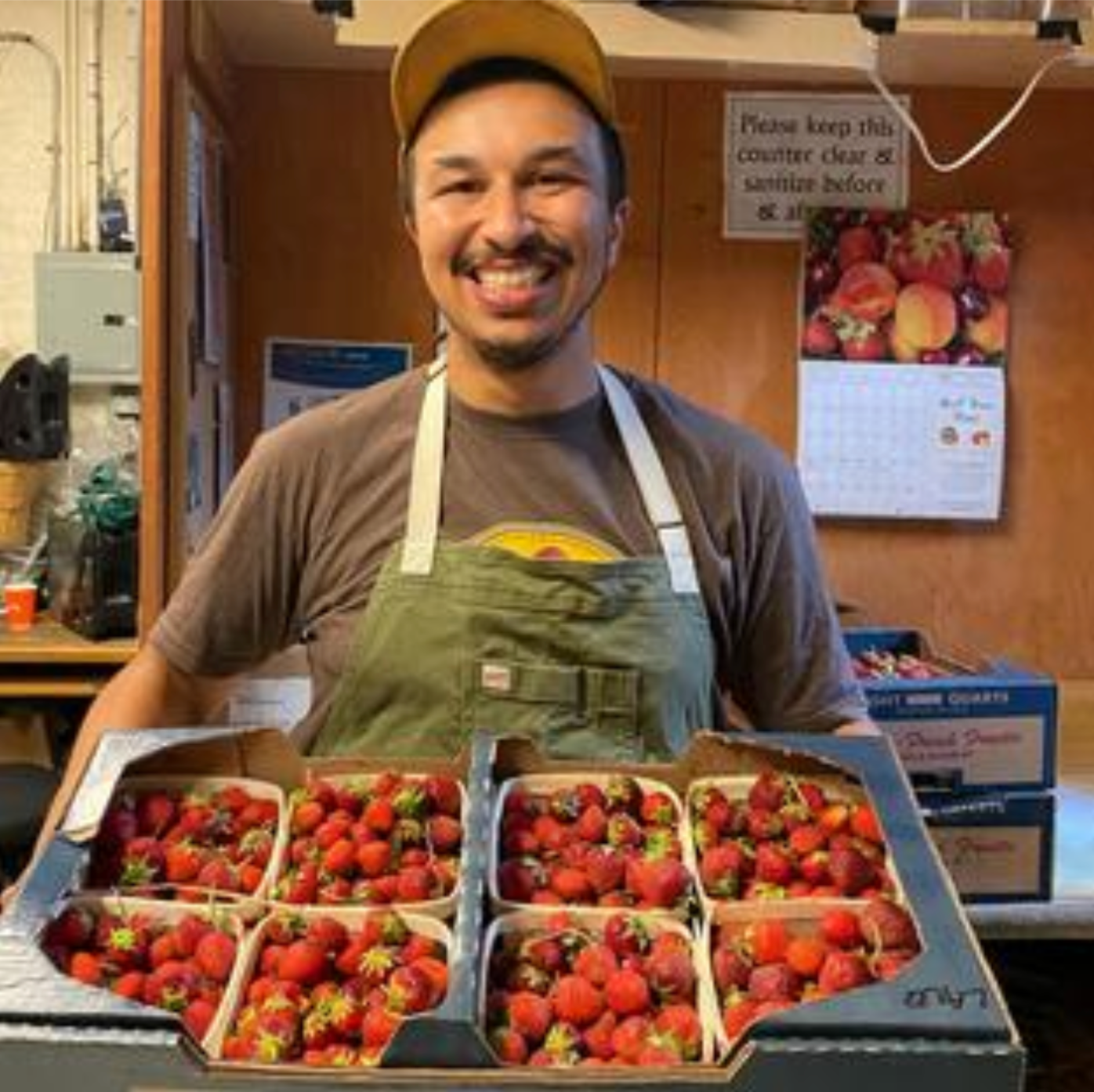
Old City Acres, a Ypsilanti urban farm and food hub, is one of the only farms in the region individually accredited to accept SNAP. The farm is owned and run by Alex Ball, who has lived and farmed along the Huron River his entire life. Growing up in Southeast Michigan during The Great Recession, Alex knows that people’s financial and food security can be changed overnight, and has always understood the importance of SNAP programs for community food security. Old City Acres is primarily an e-grocer–they offer home delivery and multiple in-town pickup locations for produce, but all of the produce is purchased through their online portal. When they first started taking SNAP, the intent was to integrate more SNAP users into online CSA boxes and other produce sales. Alex worked with Taste the Local Difference, a Michigan-based local food marketing organization, to generally expand e-access for local food. However, they found that there is very little demand for online SNAP sales, largely because of a lack of awareness and training on the customer side. Despite his best efforts, Alex wasn’t able to break through that barrier for e-grocery SNAP use. Despite 20% of his sales being SNAP pre-pandemic, there was such little demand after moving online that he eventually stopped advertising about e-grocery SNAP and isn’t accepting new SNAP customers (though long-term customers are still able to use SNAP). Old City Acres spends more on just maintaining their SNAP infrastructure (the Bridge card reader) than they make in profit from SNAP sales, but have decided to keep their infrastructure because when they do have their pop-up, in-person, farm stand, there is still high demand for SNAP. Because of the struggle to transfer in-person SNAP use into the e-grocery space, Old City Acres has their own internal food access programs. They offer credit packages, where investing $75 or more into the farm gives you a bonus on each dollar you spend. They also offer no-interest payment plans on all of the credit packages, and there has been a surge in demand for this option over the past year. Finally, Old City Acres also offers a $10/week for an as-much-as-you-want option geared towards students and older community members, which people can access regardless of their official SNAP eligibility. These options help fill the gap left by a lack of e-grocery SNAP use, but they also put Old City Acres in a constant battle to maintain profitability, since they’re bearing the food assistance costs internally. The farm used to be much more access-focused, but according to Alex they have been left with no choice but to raise certain prices, which is difficult in an area where the customer base is so susceptible to even small price changes (about ⅓ of the customer base makes less than 50k in household income). This has left Old City Acres in the position of having to make tough decisions, not all of which help with community food access. The lack of SNAP awareness and use in small-scale e-grocery spaces highlights one of the limitations of current food assistance programs. This post is part of a series by Emma Rose Hardy, a PhD Candidate at the University of Michigan and the Rackham Local Food Systems Intern at Growing Hope. The series aims to highlight the essential role that SNAP and other food assistance programs play in the Washtenaw County local food system.
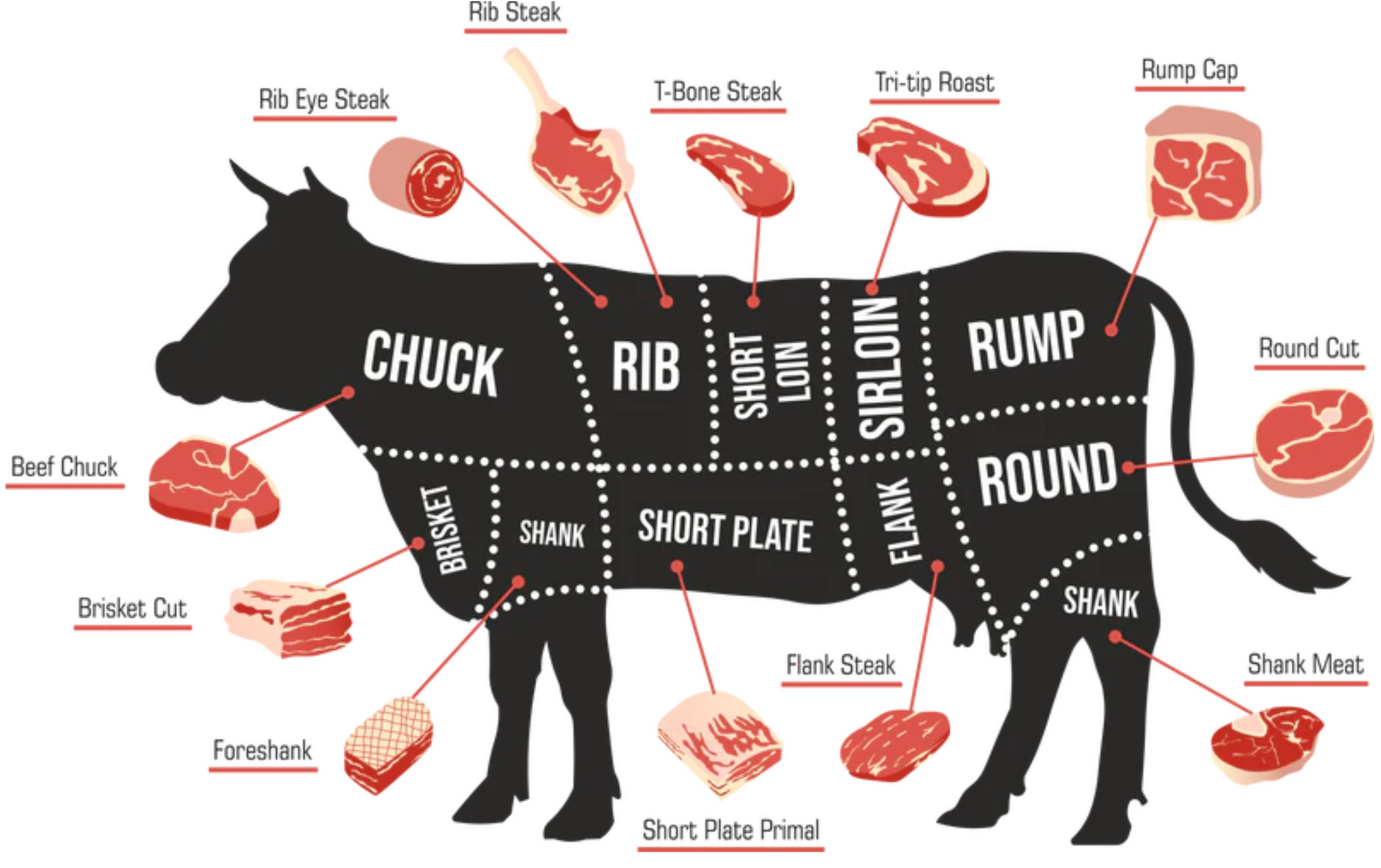
Kevin Spangler, who runs Boober Tours pedi-cap service in Ann Arbor, has had a long journey with his own health and relationship with food. He now has a successful business and relies on food as his medicine, but there was a time when he was out of work, on disability, and not eating well. He then received SNAP (Supplementary Nutrition Assistance Program) and DUFB (Double Up Food Bucks) benefits for three months, and this allowed him to turn both his health and his life around. He now views himself as a completely different person, and works to help his pedi-cab drivers also navigate healthier choices and, for those on SNAP, to make their benefits stretch the furthest. When Kevin first started receiving SNAP and DUFB, he wasn’t eating particularly healthily. But then he started shopping at the grocery store instead of party stores, and then began only shopping the perimeter of the grocery store where the fresh, less-processed foods are. He worked for a time at Silvio’s Organic Pizzeria, where he first learned about the Slow Food Movement–a movement which began in Italy but is now worldwide, and which emphasizes “good, clean, and fair food for all,” especially through local food and traditional cooking. Kevin was so inspired by what he had learned that in 2016, he wrote an article about the Slow Food Movement for Groundcover News , a street newspaper that gives a platform to underrepresented voices in Washtenaw County. He then started shopping almost exclusively at the Ann Arbor Farmers Market and following a carnivore diet, eating almost exclusively organic meat (with the occasional organic fruit). Organic meat can be expensive, but Kevin has found innovative ways to make his money stretch the furthest. One way Kevin stretches his money is by buying ground beef and organ meats from Whitney Farmstead , a 100% grass-fed regenerative ranch in Webster Township. These cuts are full of nutrition and just as high-quality as anything else, but less popular than things like steaks, and therefore much cheaper. Another way Kevin stretches his money is by working together with his pedi-cap drivers, who were also receiving SNAP benefits. Over time, he has had around ten drivers who were temporarily receiving SNAP, and they pooled their money together to buy a quarter cow from Baseline Farm for $1100. When buying a quarter cow, the cow is slaughtered on demand, and the butcher is able to customize the cuts based on the purchaser’s cutting instructions. Buying beef this way is a great way to both support local farmers and to get premium local meat at a substantial per-pound discount. Buying an entire quarter cow (or a half or a full one!) is much cheaper per pound than buying individual cuts of meat, but it requires a substantial up-front investment. No individual SNAP recipient would be able to pay that much at once, but Kevin was inspired by his experience at a sober living community in Nevada, pooling together SNAP benefits to be able to buy things cheaper in bulk. So Kevin and his drivers, each receiving a different amount of benefits, pooled their money together to buy an entire quarter of a cow and split the meat amongst themselves. A quarter cow is a lot of meat–around 100 pounds–and you can get even more meat from it when you’re willing to use all of the cow–things like organ meat and suet–which Kevin and his drivers do. Kevin says that it can be difficult at first to help people use their benefits in an efficient and healthy way, because of both a lack of desire to eat healthy and a lack of education about how to budget, invest, pay bills, and, in general, use money wisely. While he was receiving SNAP benefits and getting his business up and running, he needed to be extremely frugal. He made sure to max out on his DUFB by using them over the course of the month at the farmers market (there is a per-day cap on how much fresh produce you can have double benefits for), and only ever bought what he knew he would eat that week to eliminate any food waste. Kevin passes these health and financial values on to his pedi-cap drivers, and over time many of the people he works with have been inspired by how he eats. It took him 20 years to start figuring out his own health, so he knows how difficult it can be and likes being able to use his own experience to help guide his drivers as they start their own health journeys. Kevin is now a successful, health-focused business owner, but it was a long journey to get here. Having access to SNAP and DUFB benefits was essential for getting him up on his feet, and he had the business savvy to be able to stretch those benefits and use them to their fullest potential. He is a great example of the ways in which, through careful budgeting and intentional buying, local, organic food can be accessible to people depending on SNAP and DUFB benefits. This post is part of a series by Emma Rose Hardy, a PhD Candidate at the University of Michigan and the Rackham Local Food Systems Intern at Growing Hope. The series aims to highlight the essential role that SNAP and other food assistance programs play in the Washtenaw County local food system.
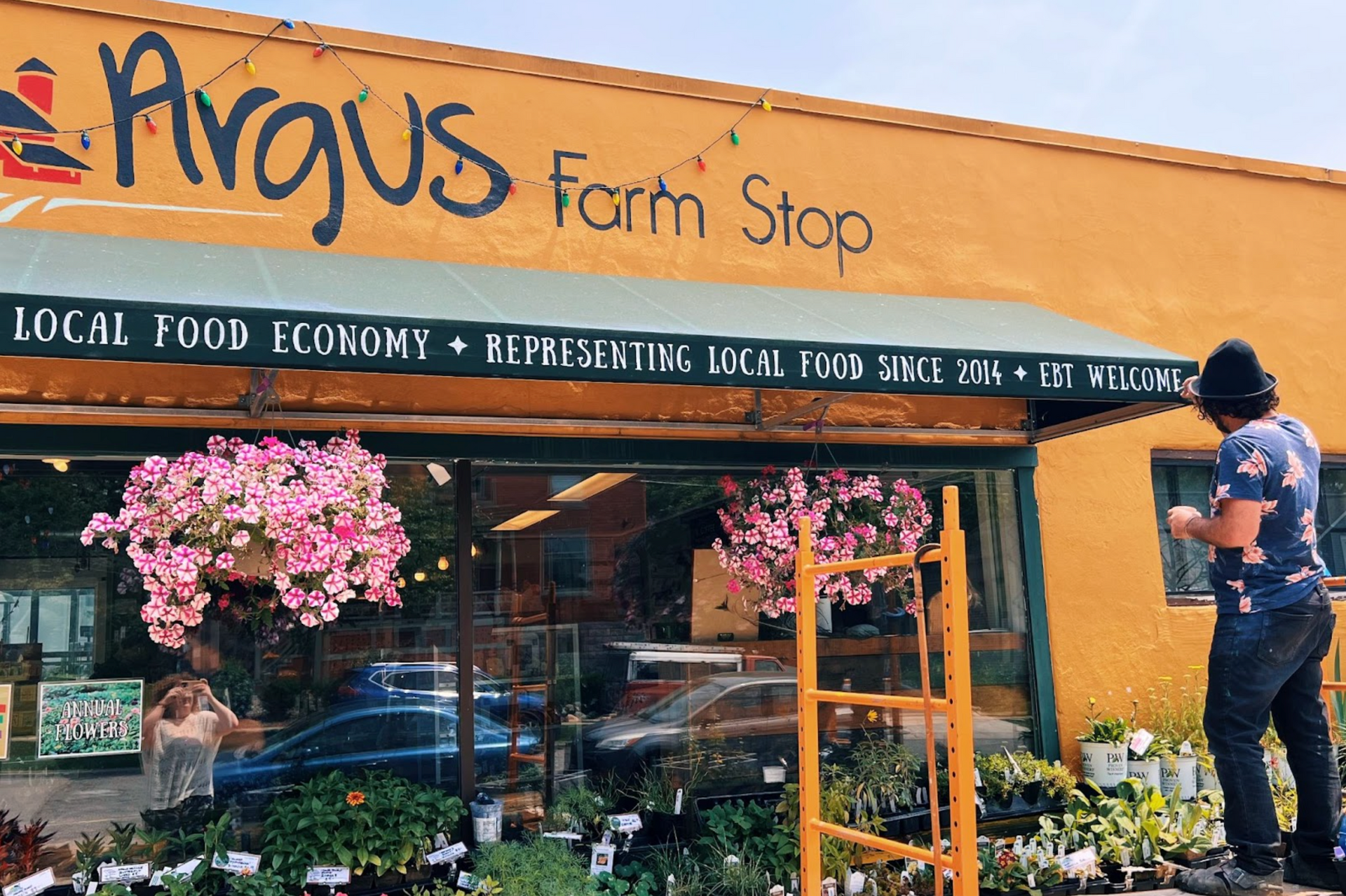
At Argus Farm Stop in Ann Arbor, Michigan, food access and equity are central to the mission of building a robust local food system. The Argus food access team, Tess Rian, Mara Logan, and Rosie Estes, aim to make using food assistance at Argus as easy as possible and also to educate Argus staff, customers, and broader community members about the important role that food assistance plays in the local food economy. During recent store renovations, it was super important to the food access team that “EBT Welcome” be very clearly displayed on the street-facing awning of the store. Part of the aim of this is to change assumptions about “who is in our community.” Many people see both Ann Arbor and local food as domains of the privileged, but Ann Arbor is also a city full of students and young families, both of whom frequently use SNAP benefits at Argus. Once SNAP customers are in the door, the food access team aims to make using SNAP as simple as possible and to make the money go as far as possible. Argus does this by offering heavily subsidized weekly produce boxes and by giving 50% off all fresh produce. The weekly produce box is a selection of 6-9 items selected by the staff, and includes detailed information about the contents of the box, including possible recipes. For non-SNAP customers, the boxes are currently $30, but for SNAP customers, the boxes are currently less than $10. The food access team designates 100 boxes a week to be available at a discount to SNAP customers, but currently, there are fewer customers than those who have requested to receive the boxes. If you are a SNAP recipient interested in a discounted Argus Farm Stop produce box subscription, please email hub@argusfarmstop.com to set it up! For non-subscription produce purchases, in the state of Michigan, the Double Up Food Bucks Program allows SNAP customers to make their money go twice as far when purchasing fresh fruits and vegetables. For every dollar they spend, they receive a “matching” dollar from Double Up, effectively making produce half off. However, the Double Up program has a daily limit of $20 and has been susceptible to disruption. During the height of COVID, the daily limit was temporarily suspended, but then the program itself was temporarily suspended altogether from August to December 2022. When the program resumed in 2023, the daily benefit was reduced by half (from $20 to $10) from January to September. In October of 2023, the program was returned to $20 and has remained at that level since then. However, due to the previous changes and disruptions, SNAP customers have a hard time planning for what their benefits will continue to be. Argus aims to fill this gap by supplementing their own matching funds to give SNAP customers 50% off of all fresh produce, with no daily limit. This allows customers to buy the produce that they need when they need it. Argus funds this matching program through internal fundraising; for the past three years, they have done a “Round Up at the Register” campaign, which last year raised about 10k in just one month. A strong majority of customers choose to round up, which demonstrates that the local food community understands the value of making local food more accessible to more people. The Argus food access team cares deeply about the impact their work is making, and checks in with customers using EBT cards at the farm stop about their experiences. They have received an overwhelmingly positive response about every aspect of the program, including both Double Up Food Bucks and the Argus discounted produce box subscription. The customers report being able to have access to fresher, healthier, and tastier food, which has expanded the kinds of produce regularly included in their dietary practices. At the Farm Stop Conference in March 2025, put on by Argus, one of the most-attended sessions was on food access, co-presented by Tess Rian, one of the food access coordinators at Argus, and Noah Fulmer, a senior fellow at the Fair Food Network . The session was attended by farm stop owners and entrepreneurs from all across the country, all of whom had tremendous energy and enthusiasm for making food access a central part of their own farm stops. This highlights the importance of maintaining robust food assistance programs that can integrate with smaller, locally-focused businesses like Argus Farm Stop. This post is part of a series by Emma Rose Hardy, a PhD Candidate at the University of Michigan and the Rackham Local Food Systems Intern at Growing Hope. The series aims to highlight the essential role that SNAP and other food assistance programs play in the Washtenaw County local food system.
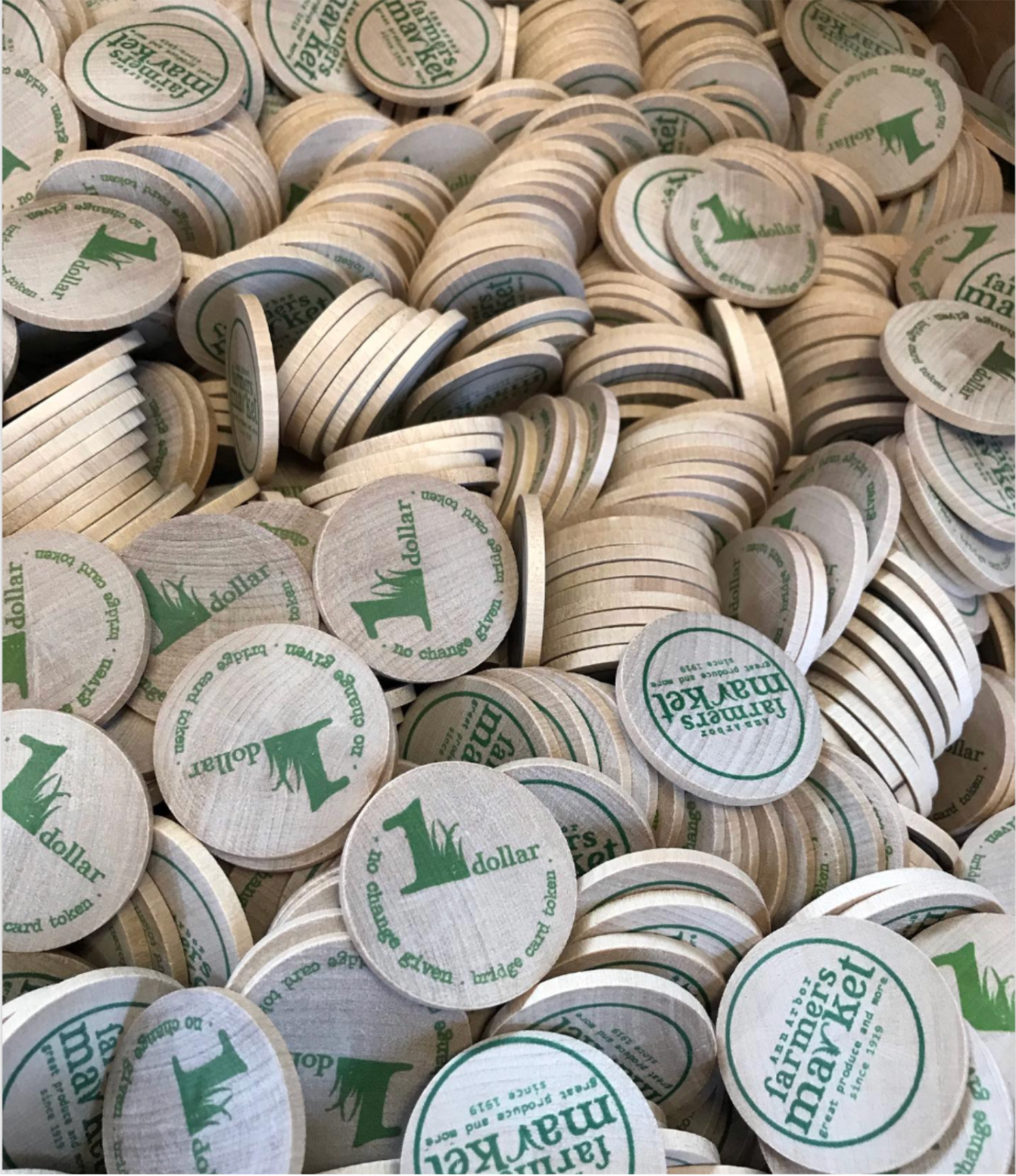
Ann Arbor has a reputation for being a university town with a relatively privileged, wealthy, white population. Farmers markets tend to have the same reputation. So the importance of SNAP (the Supplemental Nutrition Assistance Program) and Double-Up-Food-Bucks (which allows SNAP recipients to make their assistance go twice as far when buying fresh fruits and vegetables) to customers and vendors at the Ann Arbor Farmers Market might come as a surprise. But according to Ann Arbor Farmers Market manager Stefanie Stauffer, the Ann Arbor market takes in more money from SNAP and Double-Up-Food-Bucks than any other market in the county. She says there are many “die-hard regulars” who the market staff know by name and who use their food assistance at the market weekly to access more nutritious, more affordable, and sometimes more culturally appropriate foods than they would be able to otherwise. Many of these customers come in from nearby communities like Ypsilanti, due to the size and accessibility of the market (it is located close to the city’s main transit center). Almost all of the food vendors at the Ann Arbor Farmers Market take SNAP, and in 2024, vendors at the Ann Arbor Farmers Market redeemed over fifty thousand dollars in SNAP and just under fifty thousand dollars in Double-Up-Food-Bucks. Stauffer noted that the Wednesday farmers market is especially frequented by SNAP users; on a recent Wednesday, there were more SNAP token sales than regular credit card token sales. Stauffer also noted that the market does a lot of outreach to non-English speaking communities so that they are able to fully participate in the market. The largest communities are Chinese-speaking and Russian-speaking, and according to Stauffer, “That’s very Ann Arbor; I’ve never talked to any other market like that.” Last time there was a big change in SNAP benefits, Stauffer hosted information sessions at two nearby senior centers, using a Chinese translator and a Russian translator, to communicate the changes and answer any questions about what this meant for them shopping at the market. Stauffer notes that the exact SNAP and DUFB amounts matter a lot to the customers, and many of them will regularly check in and confirm how their benefits are changing due to the constantly shifting terrain of food assistance programs. Despite this, she is confident in the resilience of customers who use SNAP at the market to continue to weather changes to the program. The Ann Arbor Farmers Market is able to be the vibrant, diverse place it is largely because of the robust food assistance programs that less wealthy customers have access to. Without SNAP and double-up food bucks, the market might end up fulfilling the stereotype of being a space mostly for wealthier people. This post is part of a series by Emma Rose Hardy, a PhD Candidate at the University of Michigan and the Rackham Local Food Systems Intern at Growing Hope. The series aims to highlight the essential role that SNAP and other food assistance programs play in the Washtenaw County local food system.
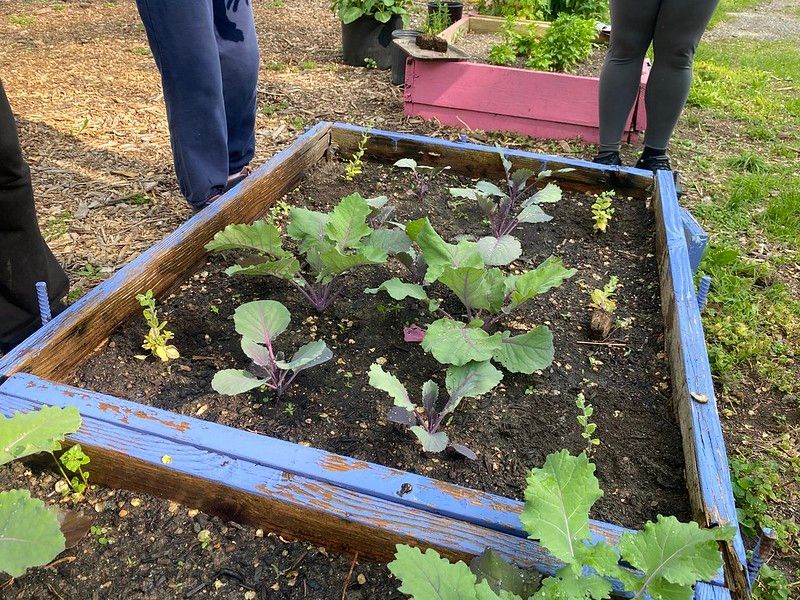
Beloved Community, We are living through a moment of transformation, where food is not just nourishment, but resistance. Not just a value, but a strategy for survival. Right now, the federal government is proposing deep cuts to SNAP and agricultural programs—policies that will land hardest on those already carrying generational weight: low-income families, elders, youth, and Black and Brown growers who have built life out of scarcity. These are not fiscal decisions. They are declarations: hunger is acceptable. Control is preferred. Liberation through land and food is a threat. At Growing Hope, we reject that logic. We are building food sovereignty in Ypsilanti. We grow not for charity, but for power. We believe our people deserve more than handouts—they deserve the tools to feed themselves, their kin, and their neighbors with dignity. The stakes are real. SNAP cuts will force impossible choices: rent or groceries, insulin or dinner. Food pantries, already threadbare, will shoulder what systems abandon. And local growers, especially Black farmers, will feel these cuts in shrinking markets, broken promises, and lost infrastructure. One grower shared, “We were finally starting to believe we had a place in this system. Now they’re pulling the rug again.” This isn’t new. This is legacy. This is the pattern. And still, we grow. Because food sovereignty is not a trend—it is a birthright. It is the right to grow what sustains us, share what we harvest, and control our future without permission. So what now? We move. Speak up. Call your reps. Tell them: cuts to SNAP and ag supports are attacks on our future. Invest local. Every dollar at the farmers market is a vote for resilience. Organize. Join us in shifting land, infrastructure, and food power into community hands. Grow. Grow food for yourself, your family, and your community. We are unwavering. A just food system is not given—it’s grown. Let’s grow together. With grit and love, Julius P.S. Our teens are actively engaging in this work every day, laying the foundation for generational health and a truly just food system. Read from them firsthand here .
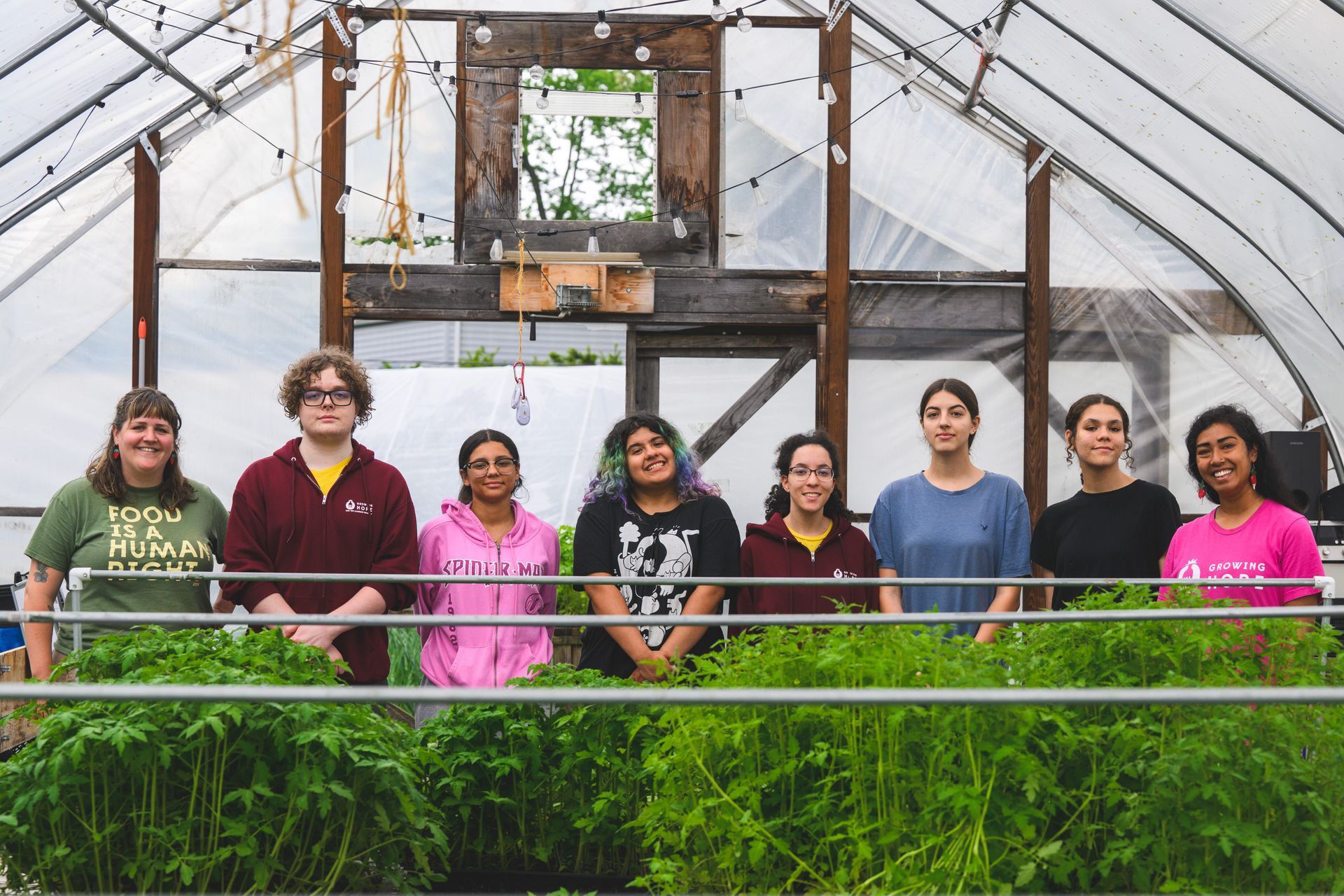
Thursday, May 22 marked the last day of the after school program for our Teen Leadership Program. We wanted to take a moment to share some of the highlights from the past eight months and recognize all of the hard work done by our young food justice leaders: Tuula Martinez, Eli Harris, Josie Smith, Jaylah Cotton, Sienna Troy, and Nick Corvera-Garay! Deepening Knowledge The fall and winter months on the farm make way for many workshops in our Teen Leadership Program! This year, the majority of our meetings were youth-facilitated, and each of our teens planned and facilitated their own workshop relating to Food Justice, Cooking, or Community Organizing. They shared family recipes in their cooking workshops, talked about the effects of colonization on our food systems, and discussed power mapping in community change work. In the fall, we visited UM Campus Farm and the Community Food Forest at Leslie Park to learn from other food growers in our area and their farming practices. We prepared for the growing season at the Growing Hope Urban Farm with workshops about plant families, companion planting, and crop planning! Community Engagement This school year, our Teen Leadership Program planned and presented at least one free community engagement event every month! They hosted monthly Food Sovereignty Film Screenings and discussions with some of their favorite films being Seed: The Untold Story and Gather . They prepared and sold handmade tea bags and honey at the Ypsi Farmers Market. Each of our teens made their own zine for the first Ypsi Zine Jamboree at the Freighthouse. They hosted a public workshop on corn nixtamalization, and processed corn they grew last summer into fresh tortillas. In collaboration with the Washtenaw County Youth Commissioners, they planned and hosted Fighting Food Insecurity: One Bowl of Ramen at a Time event at our Urban Farm with the support of FedUp , Food Gatherers , and The Farm at Trinity . The goal of this event was to educate folks about food insecurity in our community and provide an easy way to elevate a simple meal like ramen with fresh veggies and edible weeds! They did informative tabling events at YCS schools, the Ypsi Library, and other community events. Perhaps the biggest accomplishment was the launch of the Growing Hope Seed Library! Our Teen Leadership Program saved and packaged seeds from our farm, sorted thousands of seed donations, organized varieties alphabetically, and planned a launch party for our permanent Seed Library! The Seed Library is open to all and is located at the Growing Hope Urban Farm. They revived their own Instagram account– you can follow at @growinghope_teens to get a first hand look at all their work! Seeding, planting, and growing The Teen Leadership Program manages three of the growing areas on our Urban Farm: the Children’s Garden, the Sharing Garden, and The Oasis. The teens are responsible for crop planning, seed starting, and planting the beds in each of these areas totaling over 20 garden beds! The teens worked together to make crop plans by calculating seed starting dates, transplant dates, how many plants per square foot, and creating cold and hot crop rotation plans. They soil blocked, started seeds, and planted all of the cold crops for the 3 garden areas which you can see growing now at our Urban Farm! They will continue to follow their crop plans all summer long to know when to harvest cold crops and plant more hot crops. Harvested food will be given out for free in our Community Produce Cart and also used in cooking lessons in our Summer Teen Leadership Program! We are incredibly proud of this group of young people and grateful for their hard work, commitment to the community and the local food system, and the perspective and joy they bring to our organization! In June our current group of teens will be joined by six new teen crew members for a summer full of learning, growing, and leading!
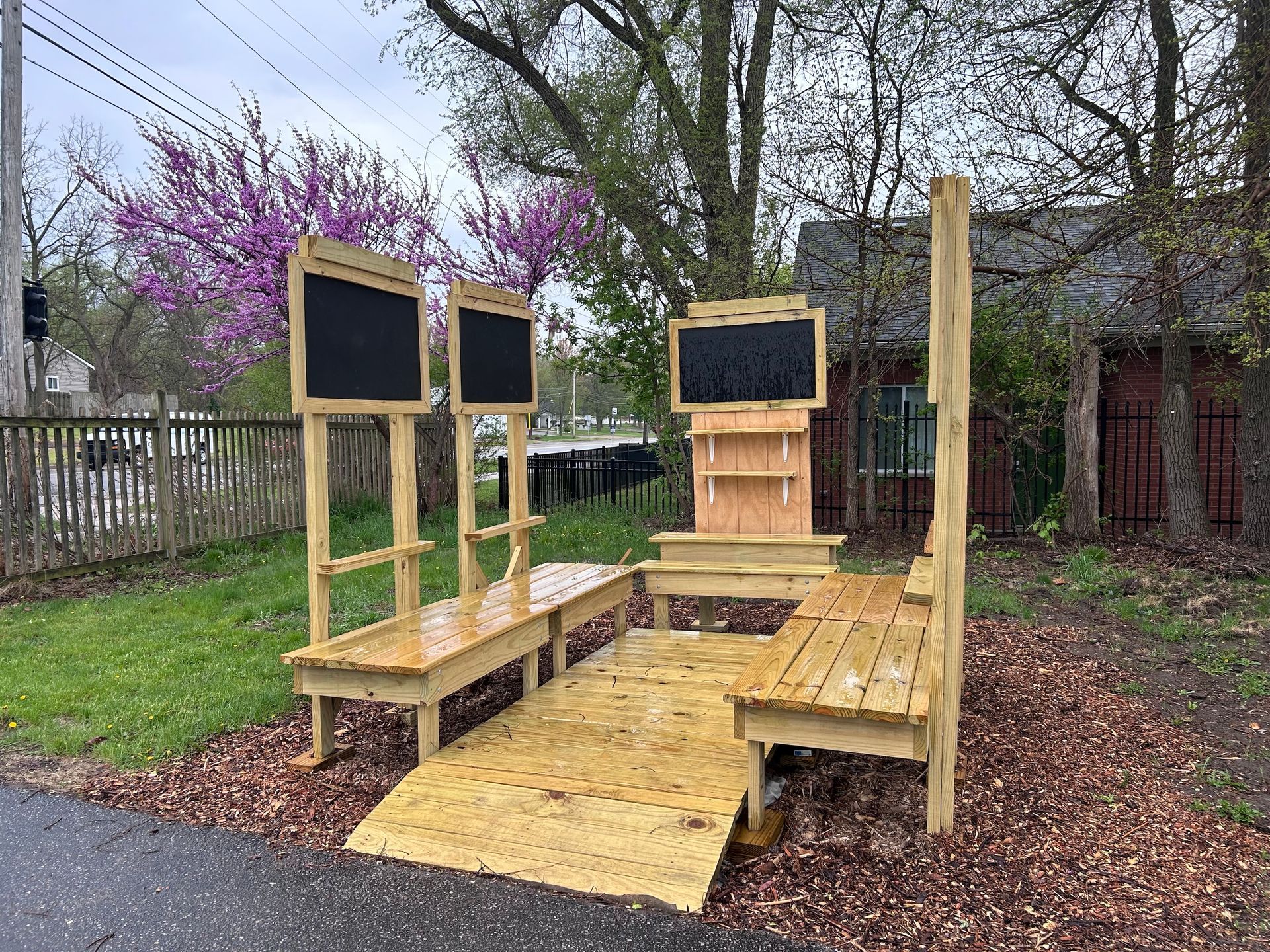
Beloved community, This season, as we plant new seeds of possibility and dig deeper into our shared commitment to nourishment and justice, I’m overjoyed to share something truly special: our brand-new produce stand , a beautiful structure dreamed up and built by the youth of Brightmoor Makerspace . It stands as a declaration—not just of what is possible, but of what is already happening when we invest in our young people, listen to the land, and center care in our collective work. Positioned near the parking lot for easier access, the new stand features a solid platform and a ramp—making it easier for neighbors with mobility challenges, elders with walkers, or caregivers pushing strollers to roll right up and gather what they need. More than just a structure, it’s an invitation: Come as you are. Leave with what you need. Return when you can. We’ve expanded the space to offer more. More produce, more flowers, more herbs, more abundance shared in community. And we’re able to do that because this isn’t just our stand; it’s yours. Our longstanding model of solidarity over scarcity continues: growers and farmers from across the county bring their surplus here, ensuring that good food never goes to waste, and that dignity remains on the table for all who visit. The need this season is real. Inflation is high, and legislative shifts have cut the legs out from under programs that once helped meet people where they’re at. Trusted partners, agencies, and food providers are being forced to scale back or shut down. And yet— our produce cart remains open , every single day of the week. No ID checks. No income tests. No red tape. If you need food, it’s yours. Period. We’ll begin stocking the stand later this month. We usually fill it in the mornings, but please don’t hesitate to call ahead. This is the work of youth, farmers, and neighbors who understand that liberation tastes like tomatoes in July and basil on your fingers and peaches you didn’t have to ask permission to pick. Come through. Eat well. And keep building with us. In solidarity and soil, Julius P.S. Don’t miss Pizza on the Farm—Thursday, May 23! Join us for wood-fired pizza, farm tours, and storytelling under the sky. It’s a gathering of hearts, mouths, and movements. Let’s eat, learn, and build together. RSVP here .
